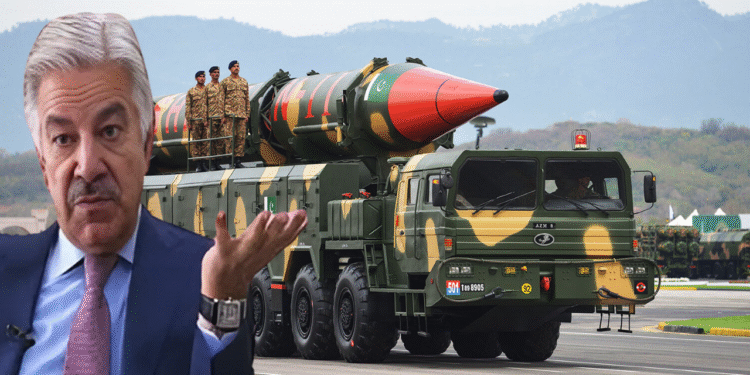Deadly Airstrikes Spark Fears of Regional Conflict
Islamabad, May 8, 2025 — Pakistan’s Defence Minister Khawaja Asif has raised alarms over the growing risk of nuclear conflict as tensions with India reach a critical point following a series of deadly airstrikes. Speaking to a local news channel, Asif described the situation as a “tinderbox” that could ignite a broader regional crisis, urging the international community to intervene.
The latest escalation began with India’s pre-dawn airstrikes on multiple locations in Pakistan and Azad Jammu and Kashmir, which Pakistan’s military described as a “deliberate act of aggression.” The strikes, targeting what India claims were militant hideouts, resulted in significant civilian casualties. Pakistan’s Inter-Services Public Relations (ISPR) reported that 31 civilians were killed, including women and children, with over 70 others injured. Among the targets were community infrastructure and religious sites, further inflaming public outrage.
“This is not just an attack on Pakistan but a reckless move that endangers the entire region,” Asif said. “India’s actions reflect its internal turmoil, and it is deflecting by provoking a nuclear-armed neighbor.”
Pakistan’s Military Response
Pakistan’s armed forces responded swiftly, launching retaliatory strikes along the Line of Control (LoC), the de facto border dividing Kashmir. In a remarkable show of air defense, the Pakistan Air Force (PAF) claimed to have shot down five Indian fighter jets, including advanced models, and neutralized a drone. Ground forces also targeted Indian military installations, reportedly destroying several strategic assets.
ISPR’s Director-General, Lt Gen Ahmed Sharif Chaudhry, confirmed that Pakistani jets executed precise strikes and returned without losses. “Our forces are on high alert, and we are fully prepared to counter any further aggression,” he said during a press briefing. Sporadic shelling continues along the LoC, with both sides reporting casualties.
Prime Minister Shehbaz Sharif addressed the nation, condemning India’s “cowardly” actions and lauding the military’s response. “Pakistan will not bow to external pressures. Our resolve is unshakable, and we stand united,” he declared in a televised speech.
Nuclear Concerns and Global Reactions
The conflict’s rapid escalation has revived fears of a nuclear standoff between the two nations, both of which possess significant nuclear arsenals. Asif referenced past crises, warning that miscalculations could lead to catastrophic consequences. “We’ve been on this precipice before, and the world cannot afford to ignore the stakes,” he said.
International leaders have called for restraint, with the United States and China urging both sides to pursue dialogue. However, diplomatic efforts remain stalled, as India and Pakistan have expelled diplomats and suspended trade and travel links.
Roots of the Conflict
The latest flare-up stems from a terrorist attack in Indian-administered Kashmir last month, which killed 26 tourists. India accused Pakistan-based groups of orchestrating the attack, a charge Pakistan vehemently denies. In response, India launched Operation Sindoor, targeting alleged militant bases across the border. Pakistan insists the strikes hit civilian areas, violating its sovereignty.
The Kashmir dispute, a decades-old territorial conflict, remains at the heart of the rivalry. Both nations claim the region in full but control only parts of it, leading to frequent skirmishes and two full-scale wars since 1947.
A Region on Edge
As military engagements intensify, civilians on both sides of the LoC are bearing the brunt. Thousands have fled border areas, seeking safety in makeshift shelters. In Pakistan, public demonstrations have erupted, with citizens rallying in support of the military and demanding accountability for India’s actions.
Analysts warn that the situation could spiral further without immediate de-escalation. “The combination of nuclear capabilities, historical animosity, and domestic pressures makes this one of the most dangerous moments in South Asia’s recent history,” said Dr. Ayesha Khan, a security expert based in Islamabad.
For now, Pakistan has signaled openness to dialogue but insists India must halt its military operations. As the world watches, the region teeters on the edge of a conflict with far-reaching consequences.
This article is an original work based on recent developments and does not reproduce copyrighted content.

















































